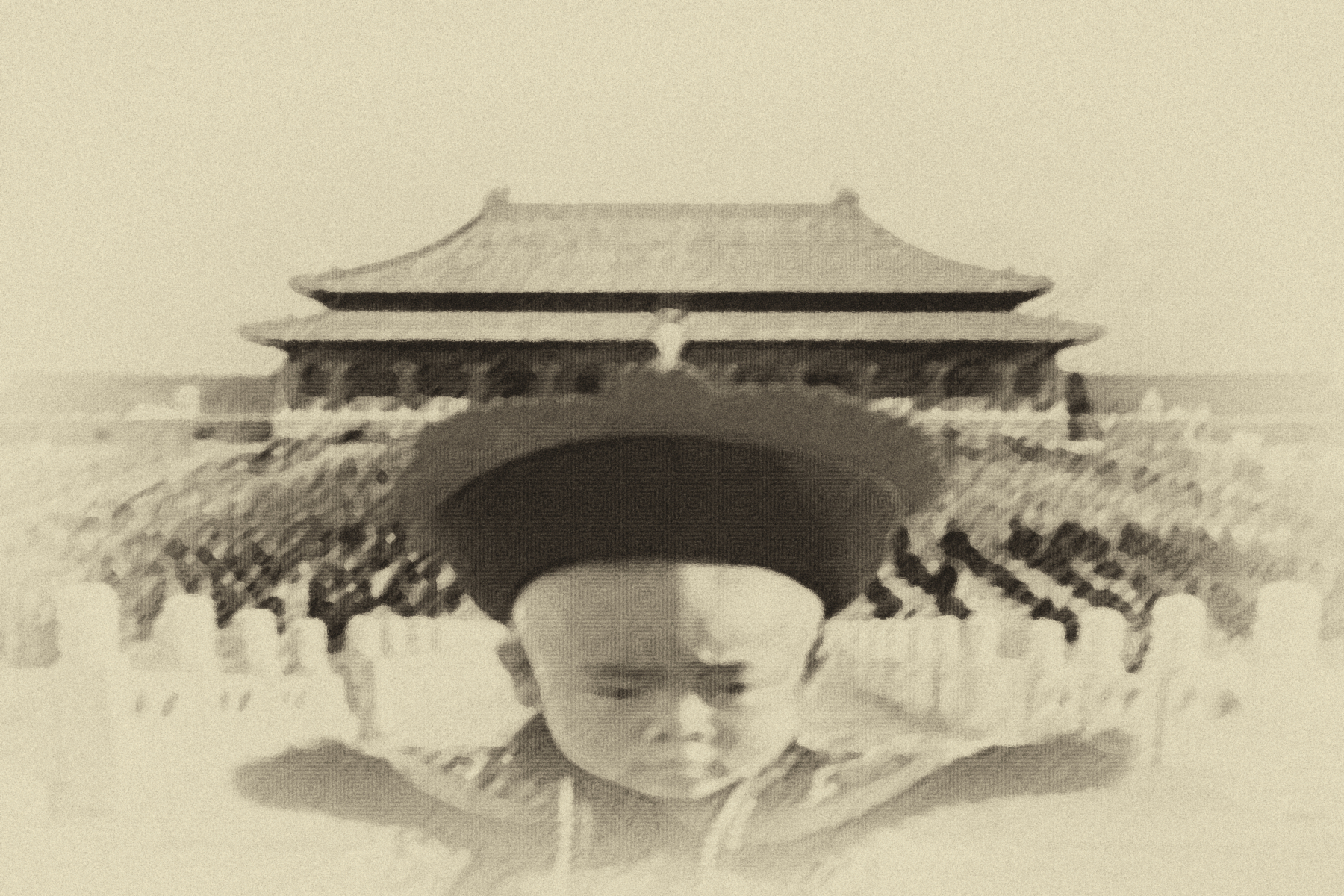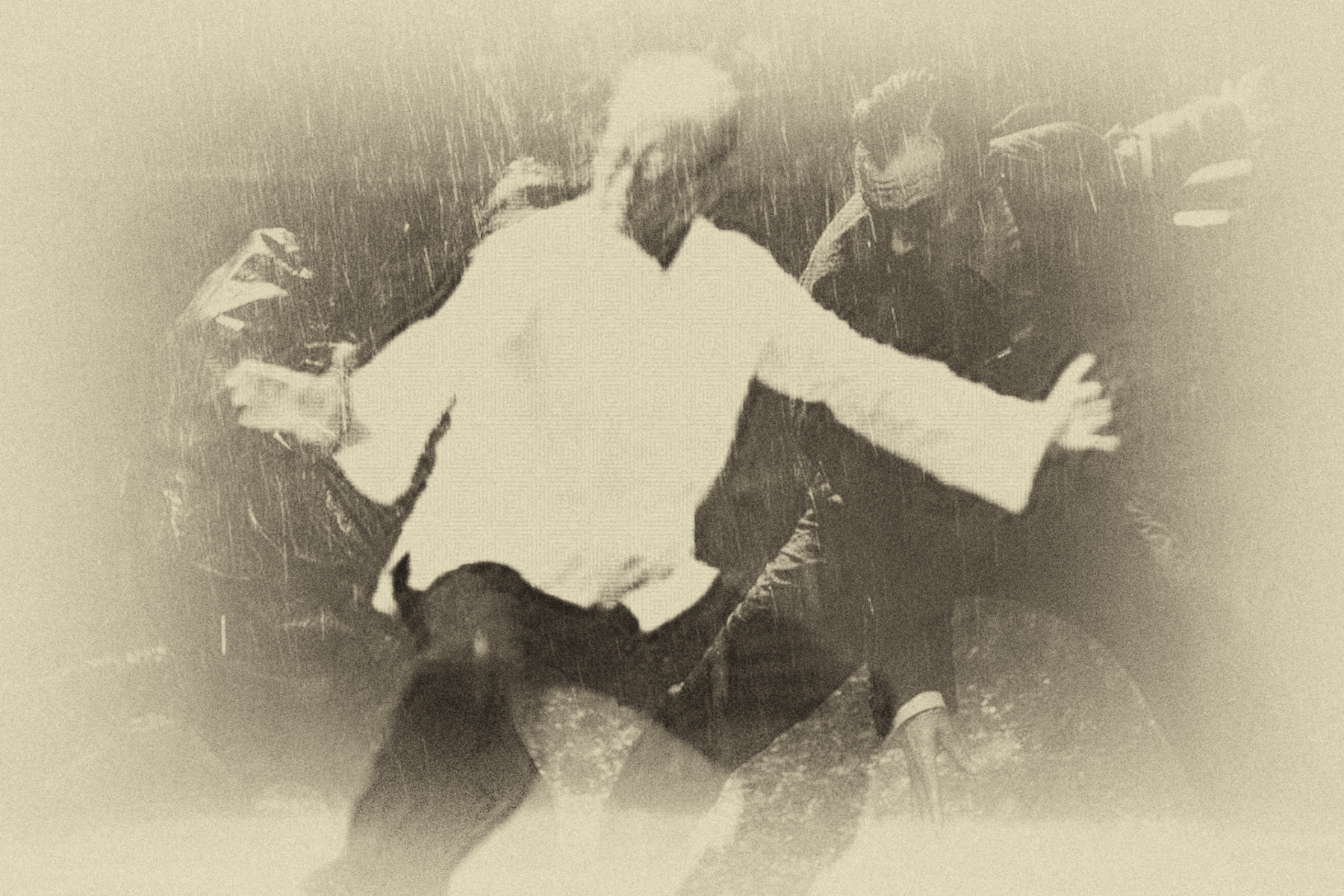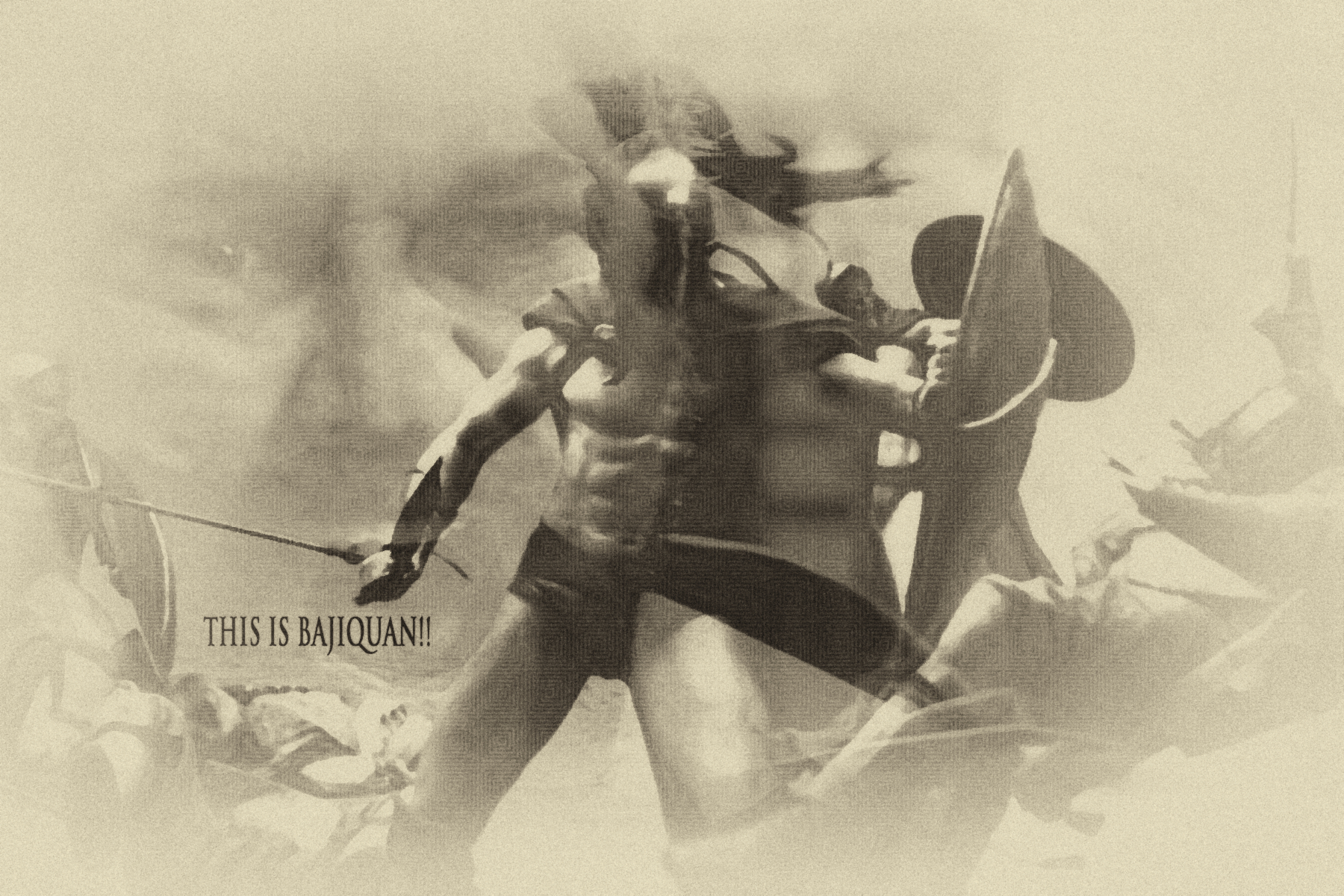
[Bernardo Bertolucci’s 1987 Motion Picture- THE LAST EMPEROR] Huo Diange, a skilled Bajiquan practitioner served as the martial arts teacher and guardian of the last emperor Pu Yi of the Qing Dynasty. In 1932, he took Huo Qingyun and others to accompany Emperor Puyi to the northeast.
Li Shuwen with Huo Diange. Li Shuwen was renowned for his Bajiquan skill in the early 20th century. Li specialized in fierce short-range elbows and long-range spears.
Razor’s character (Wang Kar Wai’s THE GRANDMASTER Motion Picture) as a military secret agent/Bajiquan fighter is inspired by Liu Yun Qiao and his teacher Li Shuwen. Liu Yun Qiao is the security consultant and instructor of Chiang Kai-shek’s bodyguards in the 1970s. Liu Yun Qiao sought to develop abilities in all areas of accomplishment: intellectual, artistic, and physical. Liu Yun Qiao’s Bajiquan is often cross-trained with Yin Style Baguazhang in the mid-20th century. [Kuan’s stepfather learned Bajiquan standard and directly through the Taiwan Marine Corps. He Jinbao is great friends with many Wutan Bajiquan practitioners in Taiwan with the Gong Baotian Baguazhang connection].
The characteristic short-range elbows and sequential blunt force of Bajiquan, descend from the heavy armor era in Ming Dynasty. Driving a spear centerline or clashing inward with a shield is essential in feudal endeavors- requiring the representative Bajiquan structures.
Bajiquan is often trained by Taiwan Airborne Troops and Marine Corps, descending from Liu Yun Qiao’s efforts. Kuan’s grandfather served as a Major General of the Taiwan Armed Forces under Chiang Kai Shek, during WW2. Bajiquan is very common in Taiwan.



